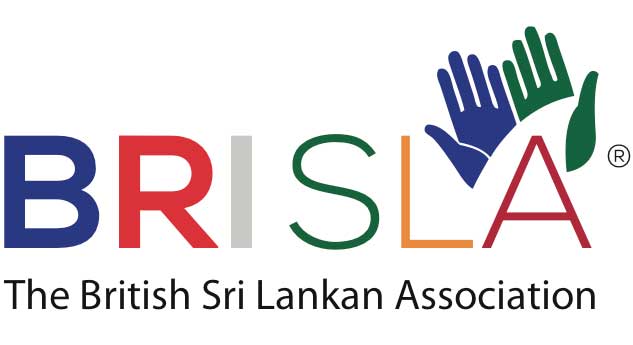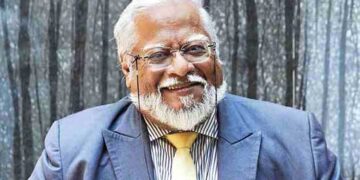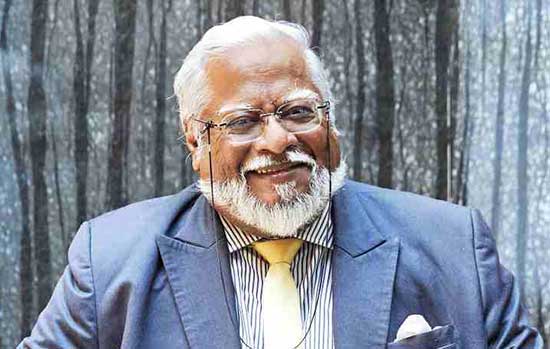Team Blitz India
LONDON: Sri Lanka will be refashioned, remoulded and relaunched as a country which stands for human rights, democratic values with an economy that promotes growth in the coming years. Former British MP and MEP of the European Parliament Nirj Deva, who is now presidential envoy of Sri Lanka, said this in his speech at a dinner hosted by British Sri Lankan Association (BRISLA) on October 20.
“We now have a chance under our current President to refashion, remould and relaunch one of the oldest countries in the world, one of the most literate countries in the world, one of the countries that fed South India and Bay of Bengal for thousands of years and to create a country which stands for human rights, democratic values and an economy that promotes growth in the coming years,” he said.
Economic reforms
Deva highlighted that during President Wickremesinghe’s tenure, he successfully implemented a series of impactful economic reforms that yielded positive outcomes. When Wickremesinghe became President a year ago, inflation was 70 per cent, he said. Today, it is 8 per cent. Similarly, Interest rate has come down from 36 pc to 12 pc.
“Then the tourists coming to Sri Lanka could be counted on your fingers. Today, we are nearly 1.0 million and increasing. The hotels which were empty then are filling up now. There are no food queues, no petrol queues, there are no power cuts. The IMF first tranche and the second tranche are being given. Things started going right simply because he knows what to do,” he said.
“President Wickremesinghe has worked very hard to bring all the communities, of Sri Lanka, the Tamil, the Sinhalese and the Muslim communities together in a very positive way to create one nation because we are one nation. For 2,500 years, Sri Lanka has been one nation and we must never allow anyone to divide us again,” Deva stated.
Deva explained that all the positive outcome was after the country was declared bankrupt. “We are going to become a key country in agribusiness, in internet and software and coding and digitised economy, in ports and logistics, in transport, in financial and banking servicing the Indian subcontinent, and further afield,” he said.
He encouraged his British political counterparts to consider investing in Sri Lanka as the nation gradually recovers from the recent economic turmoil. “Sri Lanka needs investments. She does not need lectures.
The British role should be to lead the investment promotion of Sri Lanka as an opportunity to service the vast 1.4 billion Indian market.

There is a free trade agreement between the small island and the huge 1.4 billion Indian market, which is not being used. We need to use that. And the British companies need to come to Sri Lanka, particularly on the service sector, banks, insurance companies, financial services, and other things, to promote the vast emerging middle class of India from Sri Lanka because Sri Lanka can give better tax rates, even no tax in some places like the Port City,” he said.
Strategic location
Deva stated that the strategic location of Sri Lanka, nestled in the heart of vital sea routes, facilitates strong diplomatic ties with neighboring and distant nations alike, making it a crucial player in regional and international affairs.
Speaking on post-Brexit Britain, Deva said, “When we Brexited, we left a market of 500 million people to embrace a market of 65 million people and now we need to fight back to achieve that global position we once had. A few years ago, we were the fourth richest country in the world. Now we are the eighth.”
He added that the Indian diaspora will play a crucial role in the present context, acting as a bridge between cultures, fostering economic partnerships, and contributing significantly to the global exchange of ideas and expertise and that their diverse talents and experiences will undoubtedly shape and enrich the socio-economic landscape of many countries.
















